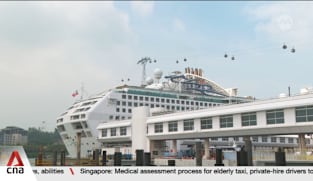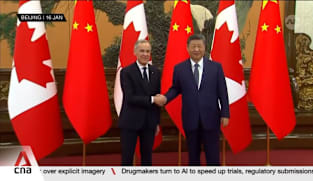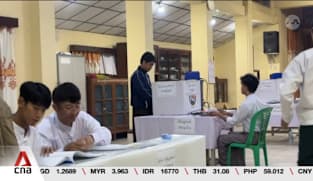Ministerial statement: Desmond Lee on Pasir Panjang Terminal oil spill
Singapore will remain vigilant and keep a close watch on the longer-term impact following the Pasir Panjang Terminal oil spill, said National Development Minister Desmond Lee. He told Parliament on Tuesday (Jul 2) that the incident is not over yet, but Singapore has made “some good progress” and will continue to work with the community and partners to safeguard its natural marine habitats. Mr Lee pointed out that while no significant impact on marine biodiversity and wildlife has been observed so far, the situation remains dynamic and there could be a time lag between the oil spill and its effects on biodiversity and habitats. Some of the impact may only show up weeks or even months later, such as during spawning periods. Assessments of the environmental impact of the oil spill on the offshore islands are therefore also still ongoing, said Mr Lee. He pointed out that while Singapore’s ecosystems are resilient, they will take time to recover from such external stressors. Mr Lee said he is “heartened” by the public's response and support. More than 1,500 individuals have signed up to help with oil spill management efforts. Another 2,000 have registered their interest to stay updated on efforts and future volunteering opportunities. As of Jul 1, more than 700 volunteers have been deployed in a wide range of efforts. Mr Lee said as Singapore moves into the next phase of managing the impact of the oil spill, it will work closely with partners such as community groups and organisations to tap on their knowledge and expertise. Following a recent consultation, some suggestions will be incorporated into actionable plans. Firstly, the Government will work with various stakeholder networks to disseminate information to keep the public updated on the progress of recovery efforts through advisories and information guides. Secondly, it will involve the wider community for coastal clean-ups and citizen patrols. Thirdly, it will work with partners to tap into their expertise and skills to support wildlife rescue and recovery efforts. Fourthly, the Government will continue to undertake impact assessments and research in collaboration with the nature community and volunteers, scientific communities and Institutes of Higher Learning on ecological recovery action plans. Fifthly, it will conduct research with the scientific community to better understand the longer-term impact of the oil spill on biodiversity.
Singapore will remain vigilant and keep a close watch on the longer-term impact following the Pasir Panjang Terminal oil spill, said National Development Minister Desmond Lee. He told Parliament on Tuesday (Jul 2) that the incident is not over yet, but Singapore has made “some good progress” and will continue to work with the community and partners to safeguard its natural marine habitats. Mr Lee pointed out that while no significant impact on marine biodiversity and wildlife has been observed so far, the situation remains dynamic and there could be a time lag between the oil spill and its effects on biodiversity and habitats. Some of the impact may only show up weeks or even months later, such as during spawning periods. Assessments of the environmental impact of the oil spill on the offshore islands are therefore also still ongoing, said Mr Lee. He pointed out that while Singapore’s ecosystems are resilient, they will take time to recover from such external stressors. Mr Lee said he is “heartened” by the public's response and support. More than 1,500 individuals have signed up to help with oil spill management efforts. Another 2,000 have registered their interest to stay updated on efforts and future volunteering opportunities. As of Jul 1, more than 700 volunteers have been deployed in a wide range of efforts. Mr Lee said as Singapore moves into the next phase of managing the impact of the oil spill, it will work closely with partners such as community groups and organisations to tap on their knowledge and expertise. Following a recent consultation, some suggestions will be incorporated into actionable plans. Firstly, the Government will work with various stakeholder networks to disseminate information to keep the public updated on the progress of recovery efforts through advisories and information guides. Secondly, it will involve the wider community for coastal clean-ups and citizen patrols. Thirdly, it will work with partners to tap into their expertise and skills to support wildlife rescue and recovery efforts. Fourthly, the Government will continue to undertake impact assessments and research in collaboration with the nature community and volunteers, scientific communities and Institutes of Higher Learning on ecological recovery action plans. Fifthly, it will conduct research with the scientific community to better understand the longer-term impact of the oil spill on biodiversity.



















